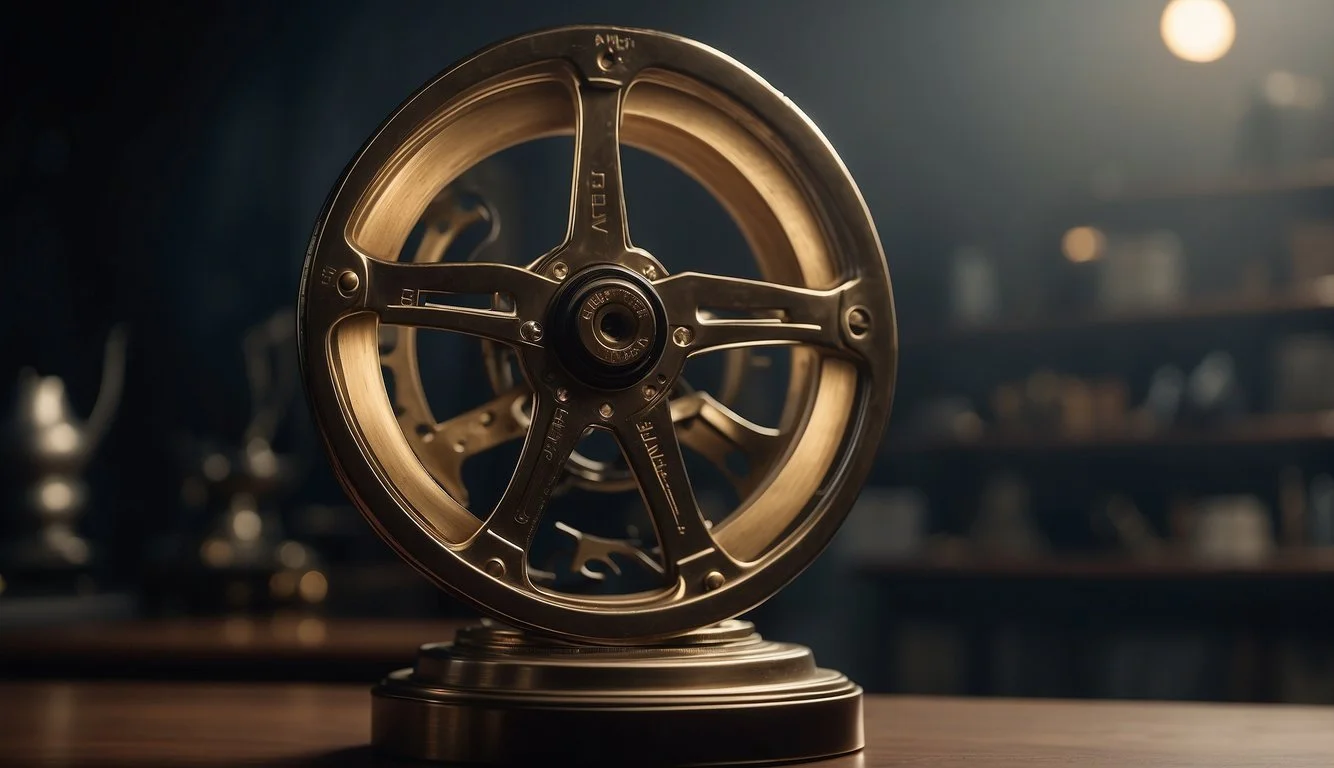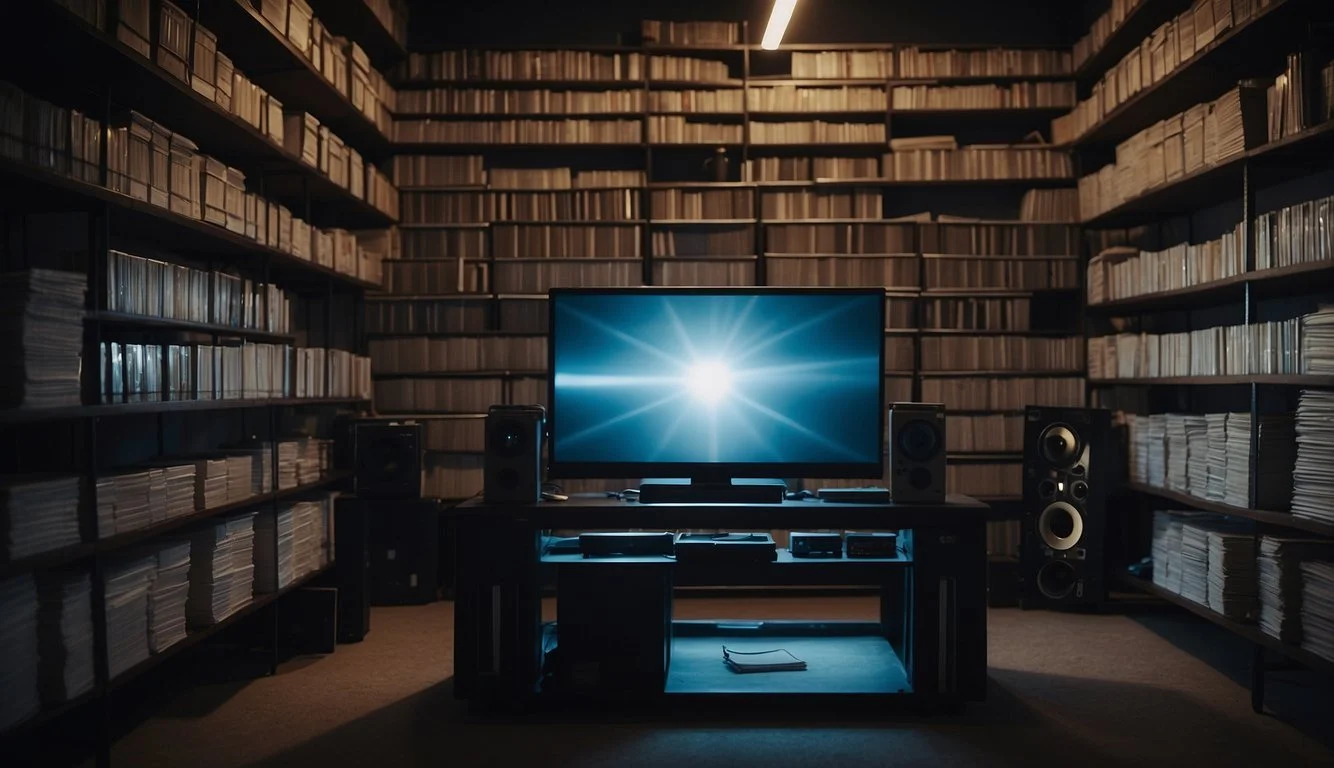Documentary Review: The Fog of War (2003)
Analyzing War and Leadership
Errol Morris's "The Fog of War: Eleven Lessons from the Life of Robert S. McNamara" delves into the complex and often opaque world of modern warfare through the eyes of one of its key figures. Robert McNamara, the former U.S. Secretary of Defense during the Kennedy and Johnson administrations, offers an unprecedented glimpse into pivotal moments like the Cuban Missile Crisis and the Vietnam War. This film not only explores McNamara's controversial decisions but also his reflections on the ethical dimensions of war, making it a must-watch for anyone interested in history and military strategy.
The documentary stands out for its innovative use of the Interrotron device, a unique video tool that allows interview subjects to maintain eye contact with both the interviewer and the audience simultaneously. This results in candid, intimate interviews that reveal more about McNamara than traditional techniques might. The original score by Philip Glass further enhances the film's poignant atmosphere, underscoring the gravity of the topics discussed.
For those intrigued by ethical dilemmas in military decision-making, "The Fog of War" promises to be both informative and thought-provoking. Morris's incisive questioning and McNamara's candid responses create a riveting narrative that challenges viewers to think critically about the nature of leadership and war.
Background on 'The Fog of War'
The Fog of War: Eleven Lessons from the Life of Robert S. McNamara is a 2003 American documentary film directed by Errol Morris. The film explores the life and career of Robert S. McNamara, the former U.S. Secretary of Defense.
McNamara served under Presidents John F. Kennedy and Lyndon B. Johnson. His tenure featured significant events such as the Cuban Missile Crisis and the Vietnam War.
The title of the documentary derives from a military concept that refers to the uncertainty in situational awareness experienced by participants in military operations. Errol Morris employs his Interrotron interviewing device to capture McNamara's reflections.
The documentary features an original score by renowned composer Philip Glass. This score adds a layer of emotional depth to the narrative, enhancing the viewing experience.
According to Morris, McNamara was initially expected to participate for just an hour. However, he ended up giving 20 hours of interviews, offering detailed insights into his complex decisions during times of conflict.
Morris maintains a unique approach, characterized by a mix of wariness and fascination with his subject. This provides a nuanced portrayal of McNamara, often considered a controversial figure in American history. The film also includes historical footage and photographs to contextualize McNamara's experiences.
The central theme is the limitations of reason in the conduct of war, as stressed by McNamara. This emphasis offers a reflective look at modern warfare and its ethical implications.
Director's Vision and Style
Errol Morris masterfully navigates the complexities of Robert S. McNamara’s life, using his unique filmmaking style. His use of visuals, interviews, and music create a compelling and thought-provoking narrative.
Errol Morris's Filmmaking Approach
Errol Morris employs a meticulous approach to documentary filmmaking. He focuses on in-depth interviews and thoughtful reflections, allowing McNamara to present his perspective directly to the audience. Morris's use of the Interrotron, a device that allows subjects to look directly into the camera while seeing the interviewer’s face, creates a sense of intimacy and directness. This technique fosters an environment where McNamara’s insights and emotions are effectively conveyed, adding depth to the narrative.
Cinematography and Editing
The cinematography in The Fog of War enhances the storytelling. Morris uses archival footage, old photos, and contemporary interviews to juxtapose past and present. The editing style is seamless, knitting together these elements to produce a coherent and engaging narrative. Transitions between McNamara's recounts and historical visuals are smooth and well-timed, creating an immersive experience that draws viewers into the complexities of wartime decision-making. The visual choices reflect Morris’s intent to provide a multidimensional view of historical events.
Music and Sound Design
Philip Glass’s original score plays a pivotal role in setting the tone for The Fog of War. The music is both haunting and contemplative, underscoring the serious themes explored in the documentary. Glass’s minimalist approach complements Morris’s storytelling style, providing a rhythmic and emotional undercurrent that enhances the viewer’s engagement. Sound design is meticulously crafted, with audio elements from interviews and archival material blending seamlessly to support the narrative flow. The interplay between music and sound amplifies the emotional gravity of McNamara’s experiences.
Robert S. McNamara's Profile
Robert S. McNamara played a pivotal role in shaping U.S. defense policy and military strategy during a critical period in history. His journey from a corporate executive to the influential U.S. Secretary of Defense marks a significant chapter in American history.
Early Life and Career
Robert Strange McNamara was born on June 9, 1916, in San Francisco, California. He graduated from the University of California, Berkeley in 1937, where he earned a degree in economics. Following his undergraduate studies, McNamara attended Harvard Business School, graduating with an MBA in 1939.
Before his military service, he worked at Price Waterhouse. During World War II, McNamara joined the United States Army Air Forces, where he utilized statistical techniques to improve the efficiency of bombing operations. His expertise in statistical methods brought him into contact with future President John F. Kennedy.
Tenure as Secretary of Defense
McNamara served as the U.S. Secretary of Defense from 1961 to 1968 under Presidents John F. Kennedy and Lyndon B. Johnson. He was instrumental in shaping the U.S. involvement in Vietnam. Despite increasing troop deployments, his strategies were often marked by a blend of rational analysis and empirical data.
Under his guidance, the Pentagon implemented significant organizational changes, including the establishment of the Defense Intelligence Agency. He also played a major role during the Cuban Missile Crisis, advocating for a naval blockade that eventually led to a peaceful resolution.
Later Years and Legacy
After his tenure as Secretary of Defense, McNamara became the President of the World Bank, where he served from 1968 to 1981. He shifted the Bank's focus towards poverty reduction and economic development in the Third World.
In his later years, McNamara reflected on his role in the Vietnam War, expressing regret and acknowledging the complexities of military conflict. His insights were captured in the 2003 documentary The Fog of War: Eleven Lessons from the Life of Robert S. McNamara, directed by Errol Morris. His legacy is one of a complex figure whose contributions to defense policy and international development continue to be studied and debated.
Thematic Analysis
The Fog of War explores deep questions around the ethics of war, the complexities of human nature, and the challenges of rationality during conflict.
The Eleven Lessons
Errol Morris organizes the documentary around eleven lessons derived from Robert McNamara's experiences. Each lesson offers insights into the decision-making processes and moral complexities of war. For instance, "Empathize with your enemy" emphasizes understanding opponents to avoid misunderstandings. "Rationality will not save us" suggests that logical decision-making alone cannot prevent disaster.
Other lessons, such as "Get the data" and "Belief and seeing are both often wrong," highlight the need for accurate information and the fallibility of perception. These lessons provide a framework for analyzing past military conflicts, including McNamara's roles in Vietnam and the Cuban Missile Crisis.
War and Morality
A significant theme is the moral implications of wartime actions. McNamara confronts the ethical dimensions of decisions made during World War II, Vietnam, and the Cuban Missile Crisis. He reflects on the bombings of Japan and raises questions about proportionality and the morality of targeting civilians.
The documentary encourages viewers to consider the humanitarian cost of strategic decisions. By examining McNamara's role, it illustrates the burden of moral responsibility carried by leaders and the often-ambiguous nature of ethical judgments in wartime.
Human Nature and Rationality
The interaction between human nature and rational decision-making is central to the documentary's narrative. McNamara argues that rationality is insufficient for preventing conflicts, as human emotions and irrational behaviors often dominate. He discusses the limitations of rational thought in high-pressure situations.
"Belief and seeing are both often wrong" underscores the notion that human perceptions are frequently flawed. The film presents the idea that leaders must constantly re-evaluate their assumptions and strategies. McNamara's reflections on these themes reveal the intricate balance between logic, emotion, and the harsh realities of human behavior during war.
Interview Techniques and Their Impact
Errol Morris' innovative interview techniques play a crucial role in "The Fog of War." For his interviews, Morris utilized a custom-built device called the Interrotron.
The Interrotron allows interviewees to look directly into the camera while also seeing Morris' face on a screen. This method creates a sense of direct eye contact with the audience, making the interviews feel more personal and engaging.
Morris spent around 20 hours interviewing Robert S. McNamara, generating a wealth of material that provided deep insights into McNamara's thoughts and experiences. By letting McNamara interact in this relaxed manner, Morris was able to capture the raw and unfiltered emotions of his subject.
The use of open-ended questions further enhances the depth of the interviews. Morris asks questions that prompt detailed, reflective responses rather than simple yes/no answers. This approach encourages subjects to share more nuanced and complex perspectives.
Moreover, Morris' "turn-the-camera-on-and-let-life-play-out" style allows the interviewee to speak freely and naturally, reducing the pressure of the interview setting. This technique helps in presenting a more genuine and authentic portrayal of the subject.
The combination of these techniques results in a documentary that offers both an intimate and comprehensive view of McNamara's life and beliefs. Each element of Morris' interview style contributes to a documentary that is both engaging and enlightening.
Historical Context and Accuracy
The film "The Fog of War" examines critical historical events as experienced by Robert S. McNamara, providing insights into the complexity and consequences of military engagement in the 20th century.
Vietnam War Depiction
McNamara's role as Secretary of Defense during the Vietnam War is a focal point. His reflections expose the intricate policy decisions and moral dilemmas faced by U.S. leadership. The documentary scrutinizes the escalation of the war, highlighting how intelligence and strategic planning both informed and misled military operations. McNamara’s interviews reveal his retrospective doubts about the war's justification and the human cost involved, showcasing rare self-critique that provides a deeper understanding of the conflict’s controversial nature.
Cuban Missile Crisis Insights
The Cuban Missile Crisis is another pivotal moment explored in detail. McNamara’s account sheds light on the tension between the U.S. and the Soviet Union, emphasizing how close the world came to nuclear war. He recounts specific decisions, such as the naval blockade and back-channel communications, that played critical roles in diffusing the crisis. Through these anecdotes, the film emphasizes the importance of diplomacy and the complexities of international negotiations during this high-stakes period.
World War II Bombing Campaigns
McNamara's tenure under General Curtis LeMay during World War II is discussed to illustrate the destructive strategies employed. He was involved in the planning of firebombing campaigns over Japanese cities, which resulted in significant civilian casualties. The film critically examines these actions, juxtaposing military necessity with ethical considerations. McNamara’s candid reflections provide insight into the rationale behind these bombing campaigns and the broader implications for modern warfare, questioning the morality of total war tactics and their long-lasting impacts on civilian populations.
Critical Reception and Awards
The Fog of War, directed by Errol Morris, received widespread critical acclaim upon its release in 2003.
Critical Acclaim
Renowned film critic Roger Ebert praised the film for its in-depth interviews with Robert S. McNamara, the former U.S. Secretary of Defense. Ebert highlighted the innovative use of the "Interrotron" device, which created an intimate and direct communication atmosphere during the interviews.
The New York Times commended Morris's documentary for its probing insights into McNamara's reflections on modern warfare, particularly regarding World War II, the Cuban Missile Crisis, and the Vietnam War. The film was noted for its unique perspective on historical events and moral complexities.
The documentary was also recognized for its haunting original score by Philip Glass, which added a powerful, emotional layer to the narrative.
Awards and Recognition
Academy Awards:
The Fog of War won the Best Documentary Feature at the 76th Academy Awards in 2004.
Other Awards:
Cinema Eye Honors: The film received multiple honors at the Cinema Eye Awards.
Independent Spirit Awards: It was nominated for Best Documentary.
The Fog of War has sustained its reputation as a critical success, with reviewers often mentioning its ability to force viewers to reconsider history and the nature of war. The film remains a significant work in the documentary genre, known for its meticulous research and thought-provoking content.
Ethical Considerations and Controversies
"The Fog of War" delves into complex ethical questions surrounding war and decision-making. Directed by Errol Morris, the documentary features former U.S. Secretary of Defense Robert S. McNamara and scrutinizes pivotal events like World War II, the Cuban Missile Crisis, and the Vietnam War.
McNamara's reflections reveal the moral ambiguities faced by policymakers. He discusses the concept of "proportionality" in warfare, emphasizing the need to balance military objectives with humanitarian concerns. This raises questions about the extent to which military actions can be justified when civilian lives are at risk.
The documentary also presents McNamara's belief in the importance of empathy. He suggests that understanding the enemy's perspective could lead to more ethical decisions in conflict situations. This notion is controversial, as critics argue whether it is practical or naive in the context of war.
Furthermore, McNamara's role in the Vietnam War remains a point of contention. His acknowledgment of errors and the subsequent loss of countless lives highlight the ethical implications of political and military miscalculations. This aspect of the film has sparked debates about accountability and the moral responsibilities of leaders.
McNamara's "Eleven Lessons" from his life in public service offer a framework for examining the ethics of war. These lessons include guidelines like avoiding hubris and acknowledging mistakes, which are pertinent in discussions about ethical leadership.
Overall, "The Fog of War" encourages viewers to reflect on the ethical complexities of war and the profound consequences of decisions made by those in power. The documentary does not provide clear-cut answers but pushes for a deeper contemplation of these critical issues.
Influence on Documentary Filmmaking
The Fog of War set a precedent in the realm of documentary filmmaking through its innovative use of interview techniques. Errol Morris employed a device called the "Interrotron," enabling Robert S. McNamara to look directly into the camera, creating an intimate connection with the viewer. This technique has influenced many filmmakers to focus on emotional engagement.
The film's narrative structure is distinctive. It interweaves historical footage with McNamara's reflections, allowing the audience to contextualize personal insights within broader historical events. This blend of personal narrative and archival material has inspired subsequent documentaries to adopt similar storytelling methods, enhancing historical authenticity.
Music plays a crucial role in The Fog of War. The original score by Philip Glass heightens tension and emotion, demonstrating the power of music in documentaries. This collaboration between documentary filmmakers and notable composers has become more common, reflecting the film's influence.
Moreover, the ethical questions posed in the documentary challenge viewers to reflect critically on complex issues. Errol Morris's ability to address moral ambiguities without offering easy answers has encouraged filmmakers to tackle more nuanced subjects.
Finally, the film's success and acclaim, including an Academy Award for Best Documentary, underscore its impact on the genre. The recognition has motivated documentarians to embrace ambitious projects and explore intricate themes with a similar sense of dedication and depth.
Conclusion and Reflections
The Fog of War delves into complex historical events through the lens of Robert S. McNamara, offering viewers a unique perspective on World War II, the Cuban Missile Crisis, and the Vietnam War. The documentary stands out due to its meticulous approach and McNamara's candid reflections on his role in these pivotal moments.
One noteworthy aspect is Errol Morris' use of the "Interrotron," which allows a more intimate and direct engagement with McNamara. This innovative technique enhances the interview experience, providing a sense of connection and immediacy.
McNamara's insights on the Cuban Missile Crisis reveal the precarious nature of decision-making at the highest levels of government. His assertion that they "lucked out" underscores the thin line between disaster and resolution. This moment, among others, showcases the unpredictability and tension inherent in global affairs.
The film also highlights the moral ambiguities involved in leadership and warfare. McNamara's reflections provoke thought on the ethics of war and the responsibilities of those in power. By addressing these issues, The Fog of War encourages viewers to ponder the ramifications of historic and modern conflicts.
Through archival footage and personal anecdotes, Morris crafts a compelling narrative that goes beyond a simple historical recount. The film invites reflection on the broader implications of military decisions and the enduring influence of past missteps on present-day policies.
In essence, The Fog of War provides a rich, multifaceted exploration of history, leadership, and ethics, making it a significant documentary for understanding the complexities of 20th-century conflicts.







